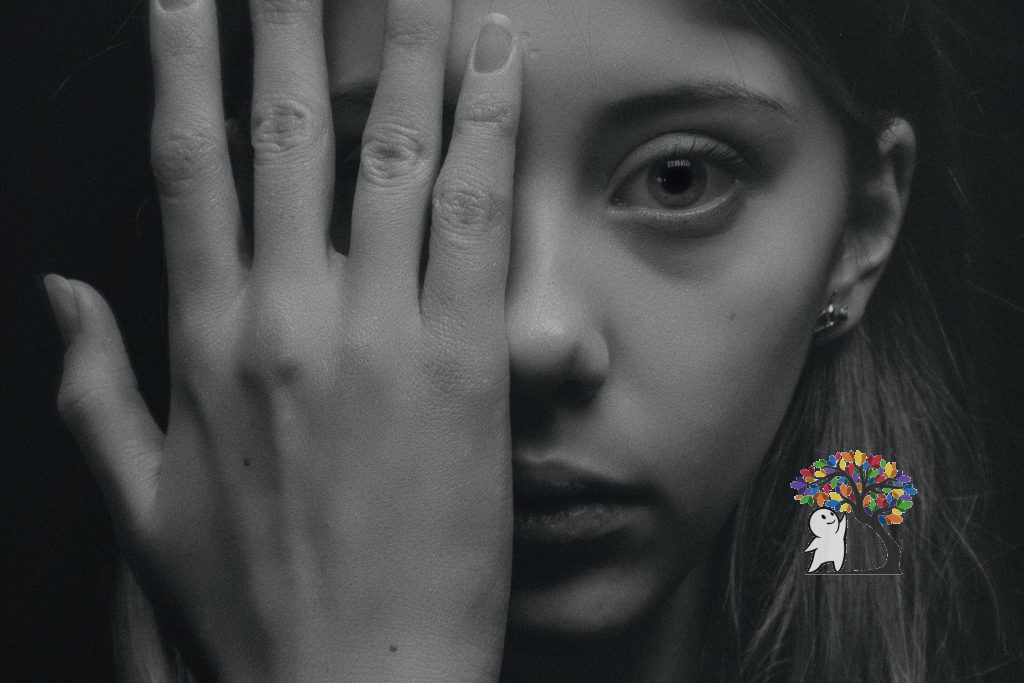6 Things To Say To Someone With Social Anxiety

Disclaimer: This is a disclaimer that this article is for informative purposes only. It is not intended to diagnose or treat any condition. Please reach out to a qualified healthcare provider or mental health professional if you are struggling.
Were you ever in a situation where you had to comfort someone during their anxiety bouts – and didn’t know how to deal with it?
The harsh truth is: we aren’t taught how to deal with mental health in school. And oftentimes, you may unintentionally say things that may cause further pain to your struggling friend.
Instead, here are the more comforting things to say to a socially anxious person.
“You are more than your past mistakes”
Has your friend expressed signs of their trauma haunting them back?
When a friend’s under an anxiety spell, it can be difficult to pull them away from that state of mind. They may subconsciously disregard their growth and progress, and instead, revert to their past state of mind when they felt most awful about themselves. When this happens, remind your friend about the progress that they’ve gone through. Remind them that their value is not rooted in anything that they’ve failed to do, but their individuality and who they genuinely are.
“What you’re feeling right now is not silly. You can let it out.”
Has your friend ever brushed aside their feelings?
Your friend might make side comments about their situation – unaware that what they’re doing is detrimental in the long run. According to research conducted by the University of Texas, trying to build a wall around your feelings doesn’t make it go away, but it actually worsens it. Instead of letting dismissive statements slip by, you can take a more supportive stance by validating the turbulent emotions of your friend.
Say Something that provides structure to the conversation
Is your friend someone who has a difficult time being in the present?
Anxious people are future-focused, and their fear of uncertainty can give them trouble in how they efficiently and effectively prepare for the future. Give an anxious person some structure and background, such as the name of a new acquaintance, a reason to go out, or a set of questions they can use to prepare for an examination. By doing this, you’ll diminish the fear response by giving a clearer picture.
“Is there any way I can help?”
Does your friend tend to struggle by themselves?
Extending a helping hand may sound obvious, but offering an act of kindness is almost always appreciated. Even if they don’t ask you to do anything after the question, the act of simply extending charity will boost their mood. An act of kindness can go a long way – and pre-empting a question that shows your genuine concern for your friend will help them on a rainy day.
“I’ll be by your side. No matter what.”
Are you someone who’ll stick by your friend no matter the circumstances?
Even in the company of friends and family, an extremely socially anxious person can still feel lonely. By showing your unconditional positive regard verbally, you’ll make a socially anxious person feel a lot less alone in their heads. If the cause of anxiety is rooted in how they feel about their relationships, this simple supportive statement can relieve them and boost their morale.
“Even if you don’t feel it, I’m very proud of you.”
Does your friend have a hard time feeling good about themselves?
Once your socially anxious friend opens up to you and shares their feelings, never judge them negatively. Show empathy and be willing to listen to them. In the worst cases, the anxious person may still feel a pang of sadness and remorse about something in their past. In those cases, a simple lift-me-up phrase that’s related to the problem can give them a shot of happiness once again. Just be careful not to practice toxic positivity, however.
Closing Thoughts
Do you know anyone in your friend group who has social anxiety?
We hope that the phrases above showed you how to talk to someone with social anxiety. Every person is different – but the general core value sets of empathy, active listening, respect, and validation of their emotions are good traits to practice when with a person who’s struggling with SAD.
That’s all for now, Psych2Goers!
References
Oppong, T. January 27, 2020. Suppressing your emotions can be incredibly bad for your health. Retrieved at https://www.theladders.com/career-advice/suppressing-your-emotions-can-be-incredibly-bad-for-your-health
Grupe DW, Nitschke JB. Uncertainty and anticipation in anxiety: an integrated neurobiological and psychological perspective. Nat Rev Neurosci. 2013;14(7):488-501. doi:10.1038/nrn3524
Cuncic, A. Sept 22, 2020. How to Help a Person With Social Anxiety Feel More Comfortable. Verywellmind. Retrieved at . https://www.verywellmind.com/how-to-make-people-with-social-anxiety-feel-comfortable-3024202
Brown, G. Dec, 20 2017. “Take Your Time:” 10 Things to Say to Someone Who Has Anxiety. https://thebodyisnotanapology.com/magazine/10-things-to-say-to-someone-who-has-anxiety/



Responses